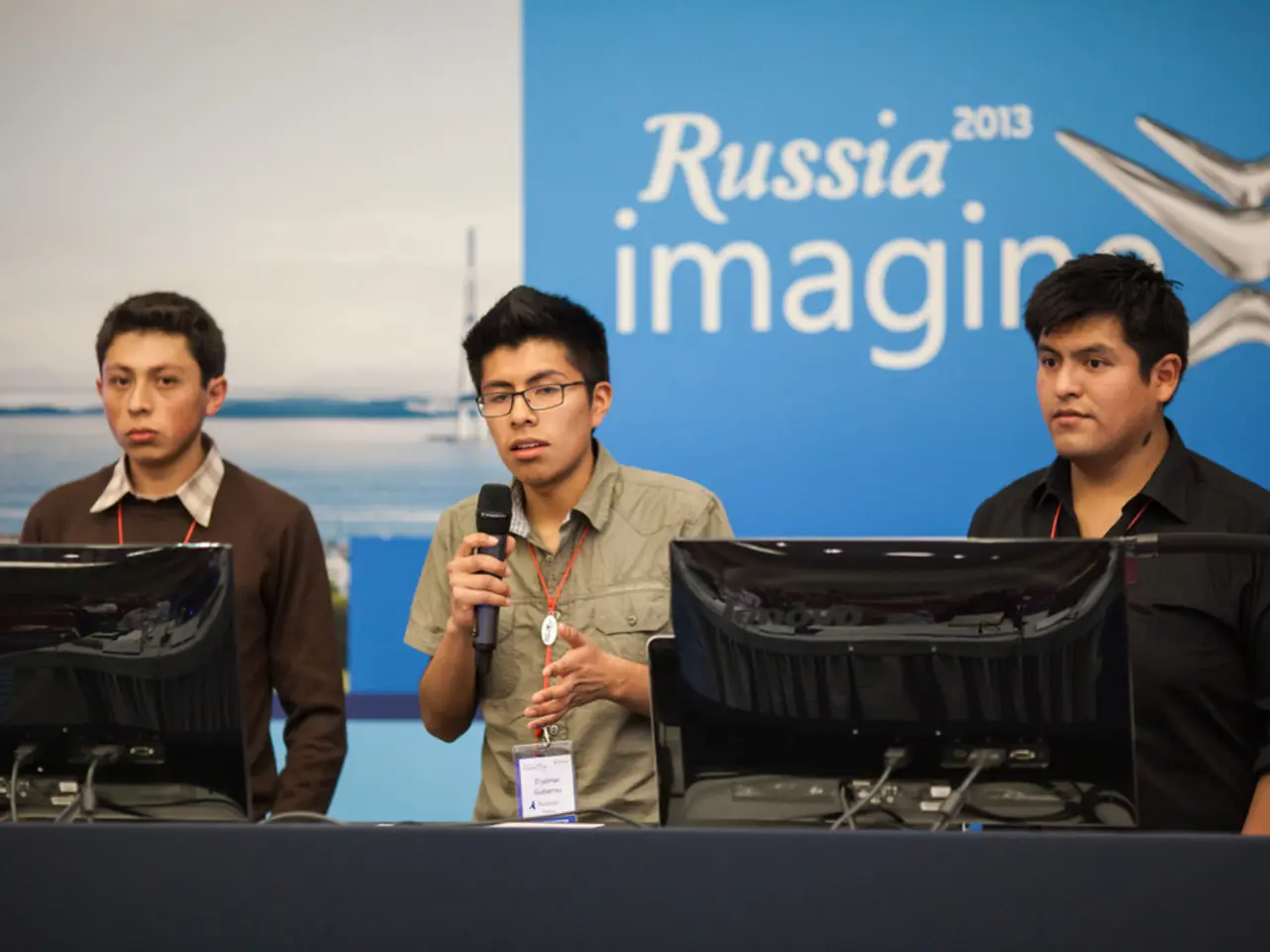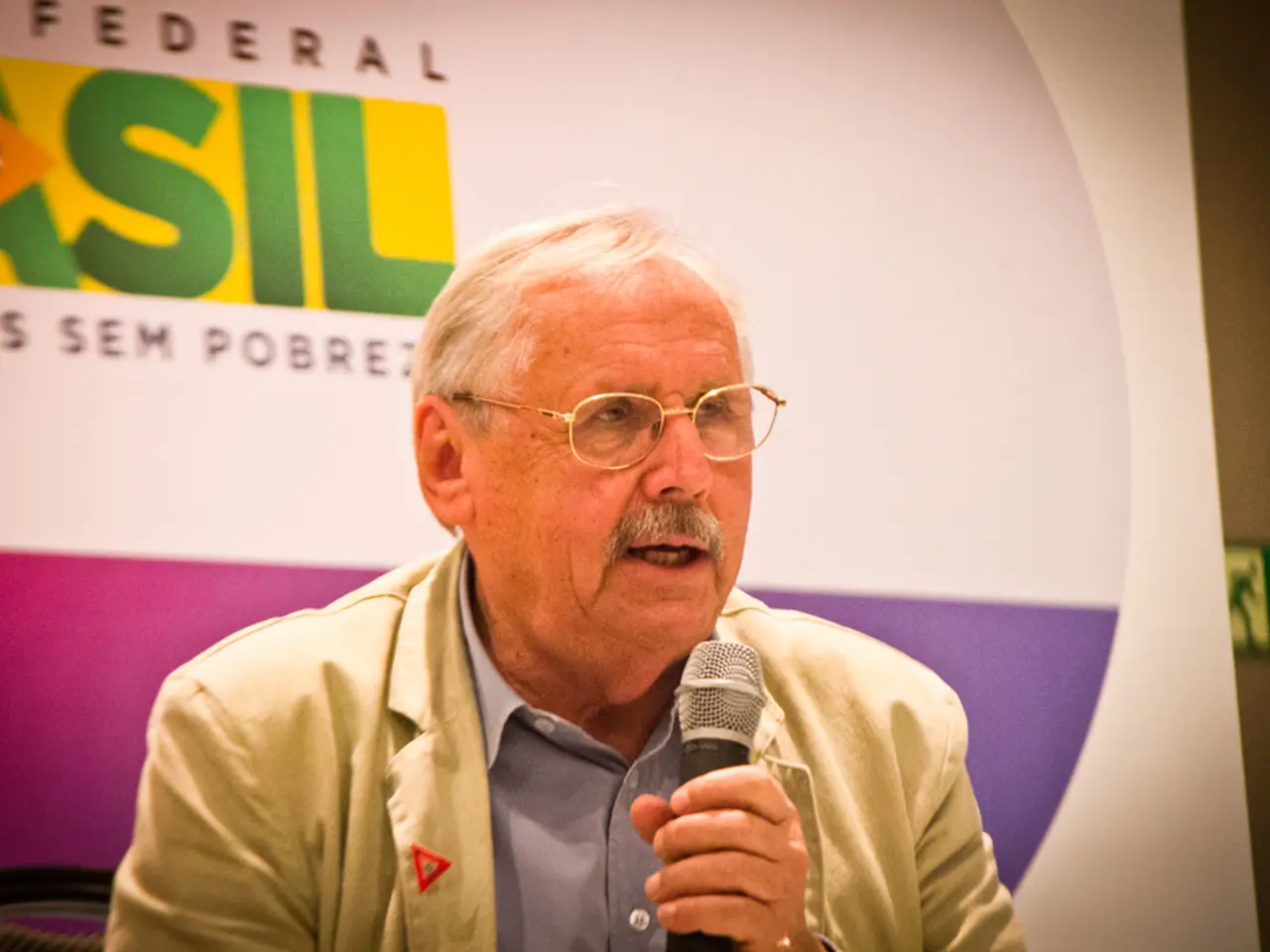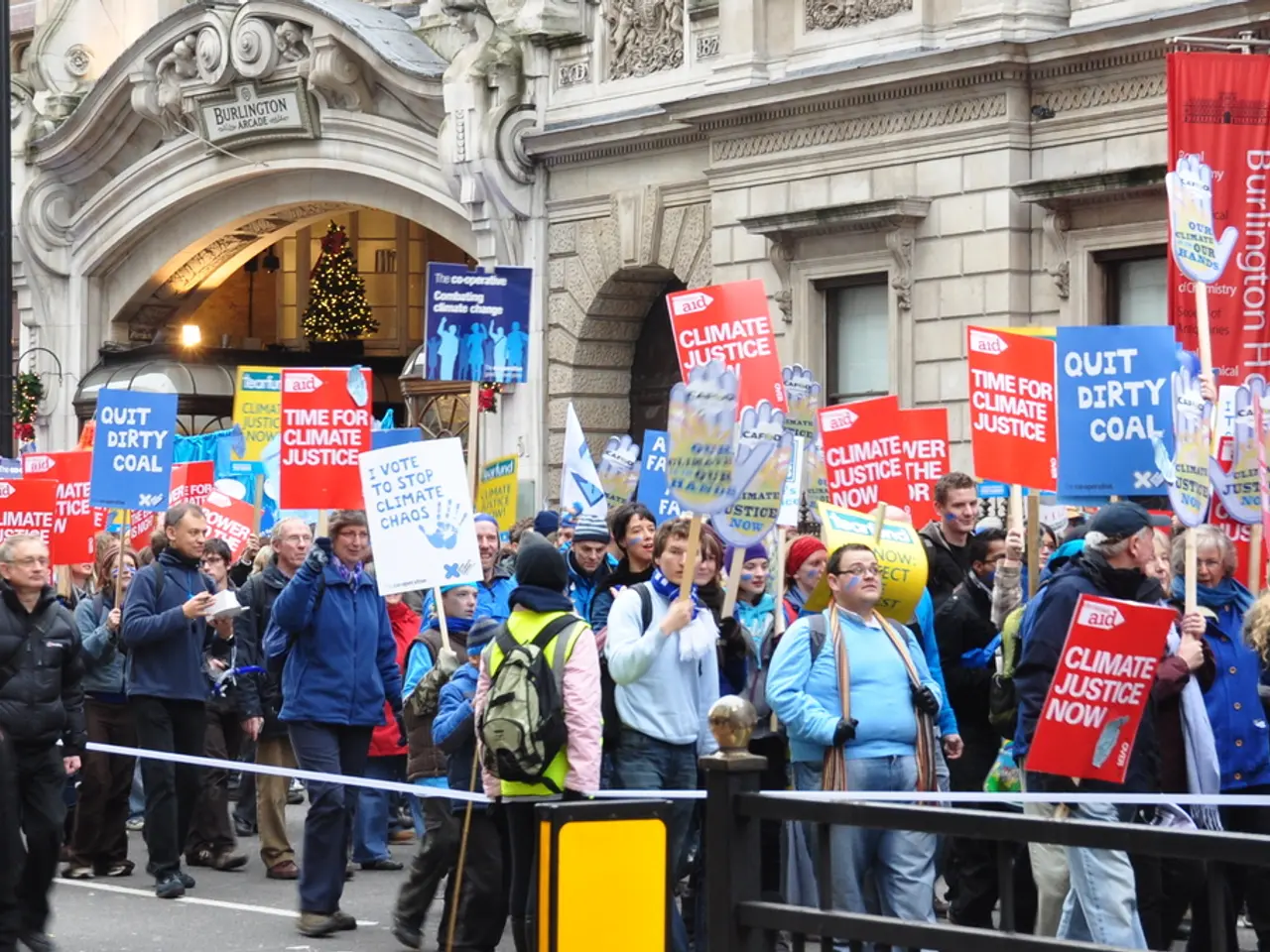A Warning on Russia's Economy: Recession on the Horizon?
Ministry Official in Russia Issues Recession Alert
It seems the political powers-that-be in Russia have sprung a surprise warning about the state of their economy. Economic Minister Maxim Reshetnikov, speaking at the St. Petersburg International Economic Forum, stated that the numbers suggest a cooling down, and we're already edging towards a recession, given the current business sentiment.
Reshetnikov criticized the central bank's policy and warned of a substantial decrease in investments. He pointed out that the current interest rate level is discouraging businesses from investing. The central bank recently made a slight reduction in the key interest rate, from 21 to 20 percent. According to Minister Reshetnikov's estimates, investments in the third and fourth quarters might fall below last year's level.
Central Bank Governor Elvira Nabiullina addressed accusations of problematic monetary policy, but she also predicted difficulties. Russia's economy has expanded for two years, defying sanctions, thanks to funds from the National Wealth Fund and existing capital reserves of the banking system. However, Nabiullina emphasized that many of these resources have been depleted, and they need to think about a new growth model.
Russia has been embroiled in a conflict with Ukraine for three years. The growth of recent years has primarily been based on a massive military and security buildup, with increased spending.
Let's take a closer look at the economic outlook for Russia in 2025. Current projections indicate a GDP growth rate of around 1.3–1.5%, with some estimates as low as 1.35%. This sluggish growth is partly due to defense industries operating at near full capacity with minimal further growth and underlying structural imbalances worsening the outlook.
Inflation remains a significant concern, with forecasts hovering around 7.1-8%, but experts estimate real inflation to be as high as 15-21% annually. This inflationary pressure erodes real incomes and living standards, causing a decline in real incomes for Russians and an increase in personal bankruptcies. Consumer activity is slowing down, with sales growth lagging behind income growth, demonstrating weakened purchasing power and consumption capacity.
Labor shortages are approaching 3 million people, complicating economic recovery and growth prospects. Additionally, ongoing geopolitical challenges expand these structural constraints, as sanctions, import restrictions, and the economic burden of military spending add to inflation risks.
Given these factors, Russia may face a challenging economic outlook in 2025, marked by a recessionary environment, high and rising inflation, structural constraints, declining real incomes, and increased financial distress among households. In conclusion, it's essential for Russia to address these challenges and develop a new growth model to secure a more stable and prosperous future.
Finance and business sectors are expected to face challenges in Russia's economic outlook, as Minister Reshetnikov has warned of a potential recession due to decreasing investments, partly resulting from the central bank's current interest rate policy.
The ongoing geopolitical conflicts and sanctions, combined with structural imbalances, are estimated to increase inflation and personal bankruptcies, further complicating the economic recovery and growth prospects for Russia in 2025.






